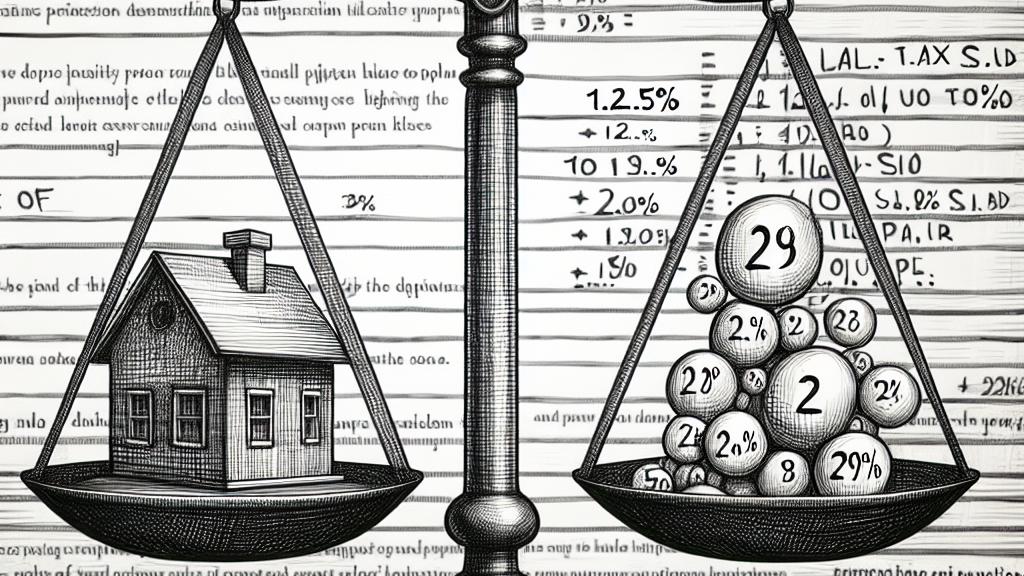Tax Evasion or Relief? Indian Government's Rollercoaster Budget Reforms!
Overview
- The Indian government's recent tax changes have stirred significant controversy among the middle class.
- Popularity of the new tax options reflects a government response to public backlash.
- Prime Minister Modi's budget plan illustrates the challenges of balancing economic growth with public expectations.

Tax Reforms Under Fire
The Indian government has encountered fierce criticism following its recent proposal to alter property tax rules. Initially, the administration announced a decrease in the long-term capital gains tax on real estate from 20% to 12.5%. While the lower rate appeared beneficial, it came with the elimination of price adjustments for inflation, which previously eased taxpayers' burdens. The backlash was swift and intense, as many middle-class citizens expressed concerns that these modifications would compound their existing financial hardships. In an effort to quell the discontent, the government pivoted, allowing individuals to choose between the new tax rate without the inflation adjustment or the older, higher rate with the adjustment. This decision marks a significant shift in the government's approach to tax policy and highlights the political ramifications of a disengaged electorate.
Impact on the Middle Class
These tax changes have emphasized the growing struggles of India’s middle class, who are already facing escalating costs of living amid stagnant wages and high youth unemployment. Families are increasingly feeling the pinch as they navigate a challenging economic landscape. The opposition parties have seized upon this sentiment, framing the ruling government as out of touch with the realities of daily life for ordinary citizens. Detractors argue that the tax reforms not only fail to provide meaningful relief but also hinder the dreams of homeownership—especially among first-time buyers. This backlash reveals a critical disconnect between government policy and the aspirations of the middle class, raising questions about whether elected officials are genuinely addressing the needs of their constituents in the lead-up to the elections.
Navigating an Election Year
As election season approaches, Prime Minister Modi's administration finds itself navigating a delicate political landscape. While the government has introduced initiatives aimed at improving infrastructure and committing to affordable housing, it faces increasing pressure to demonstrate that these efforts genuinely benefit the electorate. Besides addressing economic growth, the administration must contend with pressing issues such as rampant youth unemployment and disparities in healthcare access, which threaten to undermine public support. Critics have cautioned that while physical infrastructure is vital, human capital—education, health, and social services—requires equal attention. The impending elections will serve as a crucial litmus test, determining whether Modi's government will continue to lead with policies that resonate with all Indians. Ultimately, the effectiveness of these fiscal reforms will be showcased on the electoral stage, making the balance between political strategy and genuine economic relief more critical than ever.

Loading...